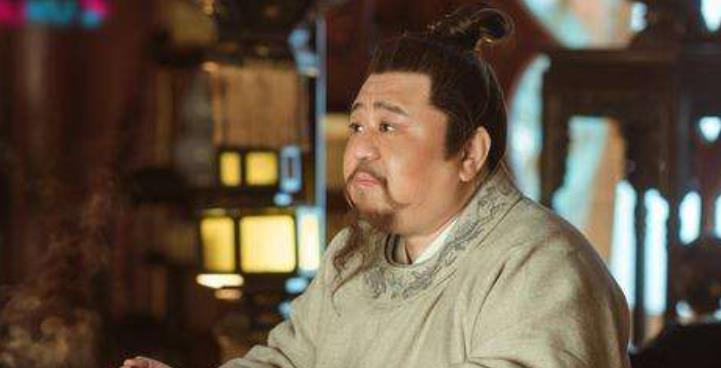Recently, "Daming Fenghua" starring Zhu Yawen and Tang Wei is being broadcast, in which the prince Zhu Gaozi, played by Teacher Liang Guanhua, gives people a special feeling of being very afraid of his father Zhu Di, and what his father says is that he does not dare to refute it, but in fact, is he really so weak and incompetent? No, Zhu Gaozi ascended the throne as emperor from September 1424, but died in May of the following year, reigning for less than a year, but in just one year, he did a lot of great achievements, which was particularly highly evaluated in the history of the Ming Dynasty.

So why would future generations so highly recommend an emperor who reigned for such a short time? What did Zhu Gaozi do? How could he get such a high rating? As the eldest son of Zhu Di, he was very calm and liked to read since he was a child, Zhu Yuanzhang was very fond of this grandson, and he also praised Zhu Gaoxu in the "History of Ming", but as the prince who conquered the battlefield, Zhu Di did not like his son who was quiet and quiet, mainly Because Zhu Gaozhu couldn't even walk the road and rarely exercised, so he preferred to follow his second son Zhu Gaoxu to fight.
In the twenty-eighth year of Hongwu, Zhu Gaoxu was named the son of the world, and Zhu Gaoxu was also named the king of Gaoyang County, according to normal words, Zhu Gaozi should have been like many nobles in the Ming Dynasty who was only an idle prince, but under the progress of history, he ascended to a position. As soon as Zhu Yuanzhang died, Emperor Jianwen began to cut down the domain, and Zhu Di was very dissatisfied with this, so under the command of Yao Guangxiao, he went to rebel with eight hundred guards.
At that time, Zhu Gaoxu, who could not walk freely, could not follow his father, and could only stay in Beiping by himself, Zhu Gaoxu followed his father to start fighting on the battlefield, several times Zhu Di was almost killed, it was Zhu Gaoxu who saved him, so Zhu Di even said to Zhu Gaoxu: Shizi has many diseases, such as encouragement. These words made Zhu Gaoxun more excited in his heart, and he was more able to sell his life on the battlefield, and his desire to rebel and become a prince became more and more obvious.
Although Zhu Gaozi did not go to the battlefield to kill the enemy, he also made contributions, just in Beiping he relied on more than 10,000 soldiers to repulse Li Jinglong's army of more than 500,000 troops, which also won Zhu Di an opportunity, in the middle of the Jianwen Emperor once wrote a letter to him, but he kept it still, and also handed over this letter to Zhu Di, it can be seen that he is not really stupid, but has his own ideas.
In 1402, Zhu Di attacked Ying Tian and succeeded in becoming emperor, so it was necessary to consider an heir, and at that time, Zhu Gaoxu already had many people who supported him, but Zhu Di still chose to make Zhu Gaoxu the crown prince after some ideological struggle, mainly thinking of two reasons, first: Zhu Di himself was a usurper, Xiaozong seized Emperor Dazong, so he violated the primogeniture inheritance system, if Zhu Gaoxu was also like this, wouldn't it make the government and the people of the world disobey? He had just sat on the throne, and he could not establish a second son if he wanted to stabilize the world.
Second: he seized the throne by force, so he should use Wen to rule the country in the future, then Zhu Gaozi is very suitable, how many brothers in history killed each other for the imperial power, so Zhu Gaozi was very clever to see what his father was thinking, even if the second and third elders provoked themselves, he showed great tolerance, even if Zhu Gaoxu himself was sick and forced Xie Jin to die, the third Zhu Gaozhu was even more in his father's illness, he wanted to murder his father, then at this time, as the eldest brother, he chose to defend the second and third elders.
As an ordinary person, the second and third elders have always been worried about the throne in their hearts, then as the prince, he would like to get rid of the two brothers, but Zhu Gaozi is very wise, he touched his father with his benevolence, and even more touched the world, and later in the Northern Expedition, his father and two brothers went to the battlefield, he stayed behind to oversee the country, under his management, the country's development is becoming more and more vigorous, so the people's hearts will slowly fall to the prince.
After becoming emperor, he was even more different from his father's governance method, he pardoned all the old ministers of the previous Jianwen Emperor, and those who should be rehabilitated were rehabilitated, and returned to their families, and for these two brothers, they did not want to have brothers turning against each other like their fathers, so they were crowned as the second and third elders. Before Zhu Di always fought wars and made the people very bitter, Zhu Zhanji attached importance to agriculture, and without war, Zhu Zhanji could have a prosperous life behind him, which was inseparable from his father Zhu Gaozi.
Therefore, even if he reigned for less than a year, he was definitely called a Ming Jun, and it is not surprising that he has such an evaluation.